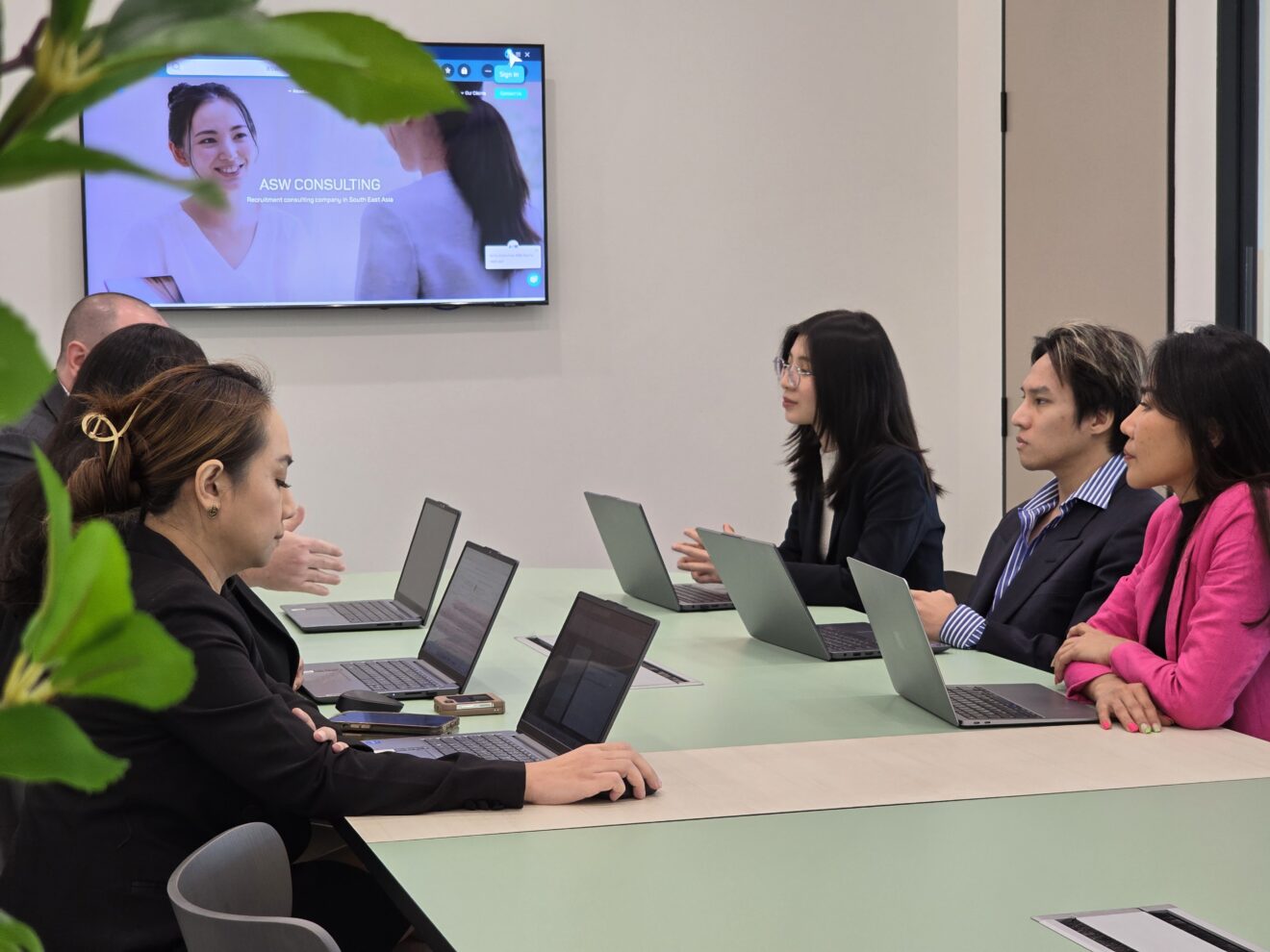
Respect and Hierarchy: Navigating Thai Workplace Relationships
Thai workplaces are known for their emphasis on respect for authority, well-defined hierarchies, and a focus on maintaining a harmonious work environment. Whilst some foreigners may find this approach refreshing, others might be unfamiliar with the indirect communication style and deference shown to superiors.
As an employer, understanding these cultural nuances is important in building a successful business in Thailand. Here’s a handy guide to help you navigate and adapt to Thailand’s hierarchy culture and work relationships.
Respect for Hierarchy: The Cornerstone of Thai Work Culture
The concept of “Khap Chun” (meaning “to have order or rank“) is deeply ingrained in Thai society. This translates to a clear hierarchy within the workplace, with strict respect accorded to those in senior positions.
• The way of the Wai: Always greet senior members first when meeting colleagues, making a slight bow with a “Wai” (placing your palms together in a prayer-like gesture) as a customary greeting. The depth of the Wai and the seniority of the recipient will determine its formality. A general rule: the junior person offers the Wai and the more senior person responds. For foreigners, rather than initiate the Wai, it is best to see which greeting you are offered and respond to it.
• Addressing superiors: The Thai first name is prefixed with “Khun” (Mr., Mrs., or Miss), unless the individual holds a higher degree, like a doctor. “Khun” applies to both men and women, regardless of marital status. If you are unaware of someone’s name, simply address them as “Khun.” For instance, Kittisak Charoensuk would be addressed as “Khun Kittisak.” In written correspondence, the format is “Dear Khun” followed by the first name, such as “Dear Khun Jane.”
• Bring your business card: Thai professionals will appraise your position within the hierarchy based on your age, experience, and role in the company. Having a business card would help as it clearly states your credentials and position. This allows your Thai colleagues to gauge your rank in the organisation for smoother interactions.
Building Trust & Respect for Lasting Work Relationships
In Thailand, business relationships develop gradually and may require several meetings to build trust. Thai people prefer to do business with those they respect. Whilst Thai culture is less strict than many other Asian cultures, building relationships remains essential for business success.
Personal questions from Thai business associates are a way to get to know you better, so don’t be offended. Being open and friendly is important, as Thai business culture values personal connections above potential profits or the bottom line.
Decision-Making Through Collective Agreement
Using a consensus-based approach in decision-making fosters teamwork and inclusivity in the Thai workplace, allowing individuals to express their opinions and promoting open communication. This approach is instrumental in establishing and strengthening relationships whilst maintaining team harmony. Leaders are responsible for guiding discussions, achieving consensus, and considering all viewpoints before reaching a decision.
Verbal & Non-Verbal Communication
Thai etiquette emphasizes politeness and indirect communication to avoid confrontation. Conversations are usually reserved, and it is important to speak softly and respectfully, as loud or brash tones can be interpreted as rude or aggressive.
Pay close attention to non-verbal communication cues. Be mindful of your body language and facial expressions. Thai people generally avoid using hand gestures to emphasize points in conversation. Excessive or rapid gestures can be misinterpreted as anger. Crossing your arms or pointing with one finger can come across as rude and accusatory.
In Thai culture, feet are viewed as “things that are dirty” (khǎawng dtàm). Thus, placing your feet on a work or study desk is considered disrespectful. Pointing with your foot is also deemed impolite.
If you’re uncertain about something, it’s better to ask for clarification to avoid misunderstandings.
Workplace Management with ASW Consulting
A successful team in Thailand requires both talent and cultural understanding. By appreciating the importance of hierarchy and fostering strong relationships, you can create a work environment that attracts and retains top performers.
Discover more insights with ASW Consulting on how to create a thriving workplace. Contact us today for employment opportunities.
Related blogs:
Building a Culture of “Sanuk”: Tips for Creating a Happy & Engaged Thai Team
Extra Benefits for Thai Employees Beyond the Standard Package




